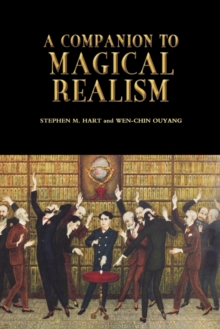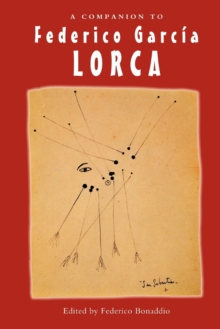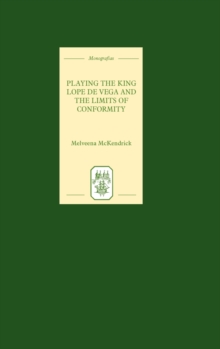
Seneca's Medea and Republican Spain : Performing the Nation Hardback
by Dr Oliver Baldwin
Part of the Monografias A series
Hardback
Description
Based on extensive archival research and containing rare and previously unpublished photos, this book provides the most detailed reconstruction ever of one of the most important events in Spanish theatrical history. Winner of the 2019-20 AHGBI-Spanish Embassy Publication Prize On 18 June 1933, one of the most important events in Spanish theatrical history took place before an audience of 3,000 spectators in the ruins of the Roman Theatre in Mérida.
Translated into Spanish by philosopher Miguel de Unamuno, staged by the renowned Xirgu-Borràs Company and funded by the government, the performance of Seneca's Medea was a triumph of republican culture and widely hailed for its new dramatic and scenic languages. This book provides the most detailed reconstruction of this pivotal production to date, setting it in context and analysing its origin and legacy.
Early twentieth-century intellectuals considered Seneca, 'the philosopher from Córdoba', the epitome of Spanishness and the first in an illustrious line of playwrights stretching from Spain's Roman Antiquity to its Silver Age.
His play was seen as the ideal vehicle to showcase the Second Spanish Republic's cultural, social and educational agenda but provoked a furious backlash from opponents to the government's progressive programme.
The book shows how the performance became a cultural ritual which stood at the centre of critical discussions on national identity, politics, secularism, women's rights and new European aesthetics of theatre-making.
Based on extensive archival research and containing rare and previously unpublished photos, it will be of interest to theatre historians, scholars of Classical Reception and historians of the Second Spanish Republic.
Information
-
Available to Order - This title is available to order, with delivery expected within 2 weeks
- Format:Hardback
- Pages:324 pages, 56 b/w illus.
- Publisher:Boydell & Brewer Ltd
- Publication Date:18/02/2022
- Category:
- ISBN:9781855663565
Information
-
Available to Order - This title is available to order, with delivery expected within 2 weeks
- Format:Hardback
- Pages:324 pages, 56 b/w illus.
- Publisher:Boydell & Brewer Ltd
- Publication Date:18/02/2022
- Category:
- ISBN:9781855663565










